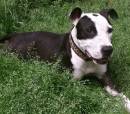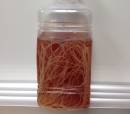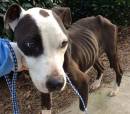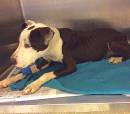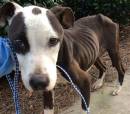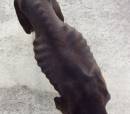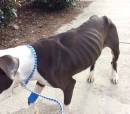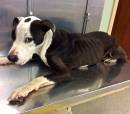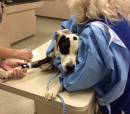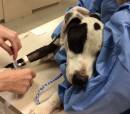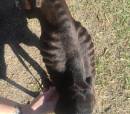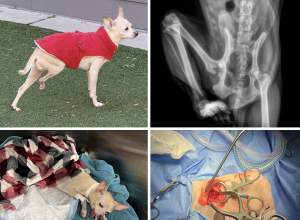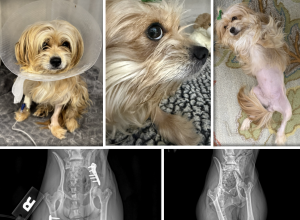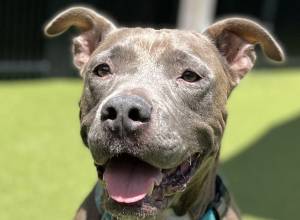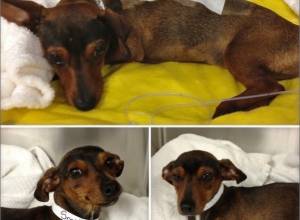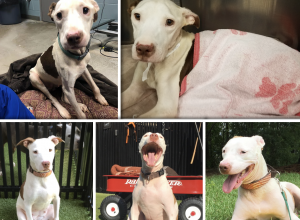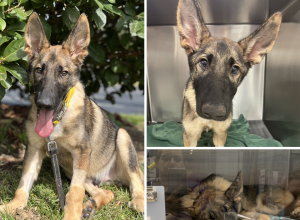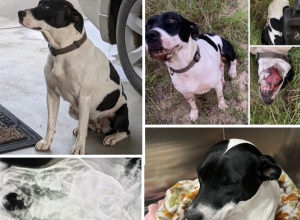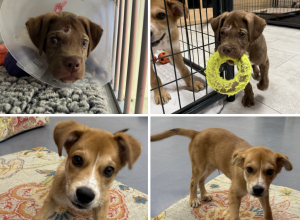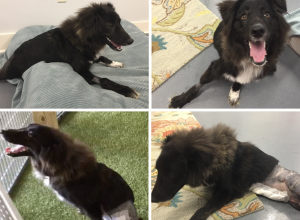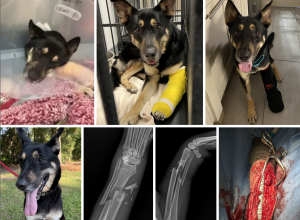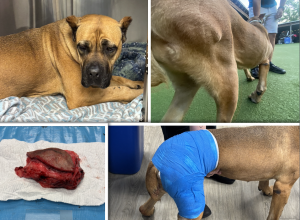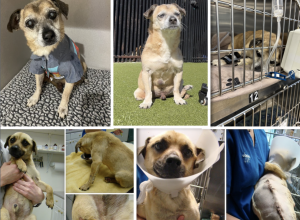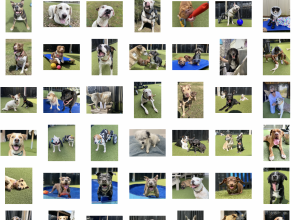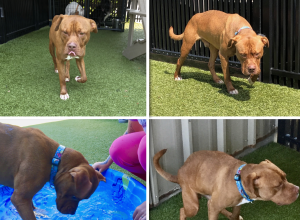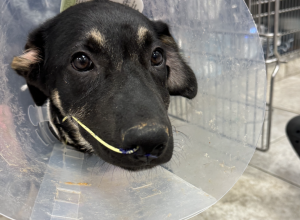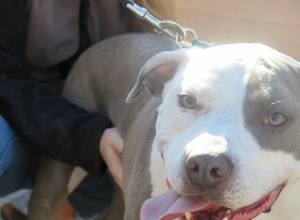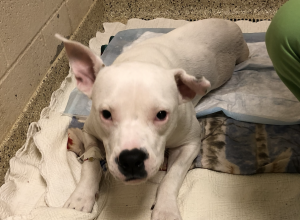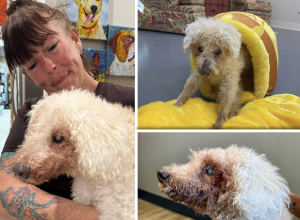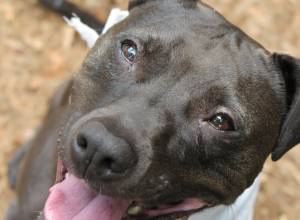ORANGEBURG, SC.......On Monday, we were contacted about a sweet 18-month-old Pitbull that had been abandoned in horrible shape. There is thin, and then there is emaciated and starved which is what our dear boy Hudson is. He wandered up to some people in Orangeburg barely able to walk. We were contacted to see if there was anything we could do to help him. He needed major medical care and needed it now.
We had Hudson taken to our vets in Columbia where he was thoroughly evaluated. He was skin and bones and loaded with every parasite known to man. Because of his emaciated state, his food intake had to be closely monitored, so he did not develop Refeeding Syndrome. This Syndrome happens in humans and animals. It is the main cause for emaciated animals dying after being given too much food after the body has begun to shut down. I can't emphasize this enough to people when they over-feed a starved animal. It is the worst thing they can do. We have dealt with this so much that I have decided to explain it in more detail to prevent more animals from dying. In the Journal of Medicine, it is defined as the potentially fatal shifts in fluids and electrolytes that may occur in malnourished patients receiving rapid refeeding. These shifts result from hormonal and metabolic changes and may cause serious clinical complications. The hallmark biochemical feature of refeeding syndrome is hypophosphatemia. However, the syndrome is complex and may also feature abnormal sodium and fluid balance; changes in glucose, protein, and fat metabolism; thiamine deficiency; hypokalemia; and hypomagnesemia. These are only a few of the metabolic changes that can happen. I have enclosed a link I think will explain it further below. It is deadly, and once the process begins, the animal or person has to be treated by a Critical Care Specialist that understands exactly what is happening and how to prevent it or reverse it. It is a balancing act that is missed all the time, and the animal dies because of it. When we take on an emaciated animal, we immediately tell the person that has the dog to NOT give them a large quantity of food or water. They are to get a small amount of food and water and the animal needs to be brought in immediately to a medical facility.
http://www.sheltermedicine.com/node/57
On top of sweet Hudson's emaciated state, he has Parasitic Anemia from Intestinal Parasites. I am often surprised by how many people do not realize how much bloodloss an animal can have from intestical parsites, fleas and ticks. Animals die from this all the time. It isn't complicated or expensive. If your pet has fleas, ticks or worms, get them treated immediately. If this goes on for too long, the animal's health suffers and eventually the animal can die. Hudson's blood values were so low that he had to be given a transfusion. He is still very weak, but his values are beginning to come up. If his body cannot maintain the values, he will have to be given another transfusion until he is stabilized.
During all of this, Hudson has been nothing but sweet smiles and kisses. He is a big puppy that still loves even after his neglect. He is in a nice warm bed, out of the cold and everyone loves him. Hudson will have to remain in the hospital until he has regained his weight and his body has begun to function normally. Right now, his blood and kidney values are all over the place. Please, help us get this sweet boy on the mend so he can go back to being a puppy and loving Life.









